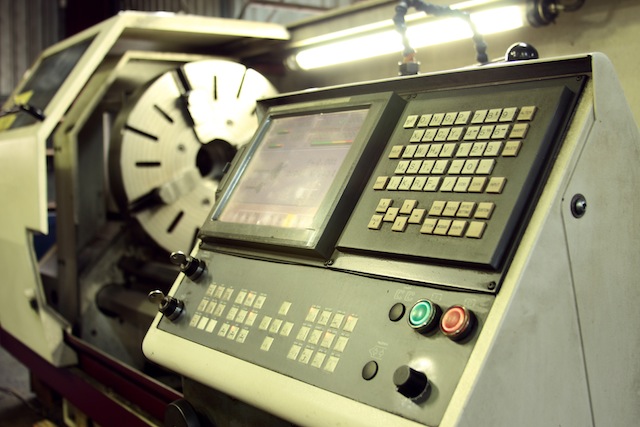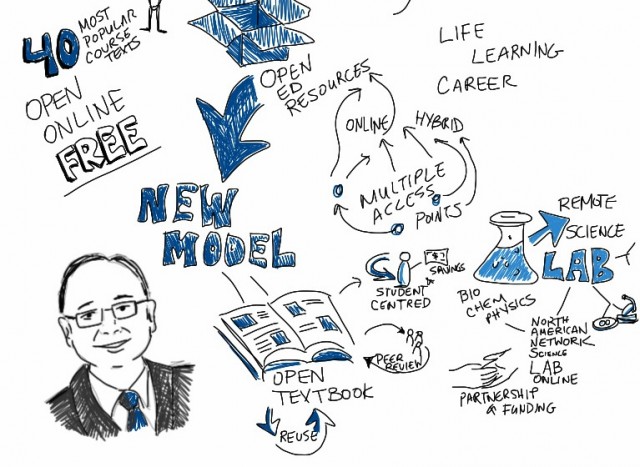“If you don’t know where you are now, you don’t know where you’re heading” says science presenter Karl Kruszelnicki – aka Dr Karl – in the publicity for the Australian government’s latest Inter-Generational Report.
Doctor Karl is part of a glossy campaign based around the report with the grand title of The Challenge of Change. The problem with the report is that it barely identifies any of the changes, let alone the effects, that might affect the economy over the next forty years.
The aim of the IGR is to identify the long term trends in the Australian economy and provide a basis for policy development. The first was delivered in 2001 and one has been produced roughly every five years since, making this the fourth.
An aging population
Much of the 2015 IGR hangs on the observation that Australia’s population is aging; stating the bleeding obvious that became apparent when the nation’s post World War II baby boom came to an end in 1965.
While the fact Australia’s population is aging despite massive immigration in recent years is undeniable, most of the report is a mish mash of motherhood statements that expose the key contradictions – dare one call it schizophrenia – lying at the heart of Australian politics and society.
The motherhood statements are all quite valid; the nation needs to develop better infrastructure, build a more skilled workforce and develop new industries as the mining boom sputters to a messy end.
Cutting education
Sadly the actions of Australian governments at both state and Federal level are in direct opposition to these laudable aims. The discussion on training and education illustrates the contradictions;
Under the ‘proposed policy’ scenario, Australian Government spending on education and training is projected to decline to 1.0 per cent of GDP by 2054-55. However, these figures do not take into account the significant increase in lending to students through the higher education and vocational education and training loan schemes.
Despite recognising the importance of training the workforce in order to keep the nation competitive the Federal government is actually forecasting to reduce spending on education and worker training.
Given the typical government education spending among developed nations is around 5% of GDP – in Australia total government spending is 5.1% for 2014 – this indicates a lot more cost to be pushed onto states to make up the shortfalls, if it is being made up at all.
A lack of investment
Particularly notable in the report is the scant talk about what industries are going to develop over the next thirty years or where the money for investing into them is going to come from.
The little discussion there is around private sector investment revolves around the superannuation system – the Australian equivalent of the US 401(k) personal pension accounts where workers are compelled to contribute into private schemes.
Total Australian superannuation assets have increased strongly since compulsory superannuation was introduced in 1992. At the end of 2013-14, total superannuation assets were $1.84 trillion, around 116 per cent of GDP. As the superannuation system matures and wages grow, total Australian superannuation assets are expected to continue to increase and make a growing contribution to national savings.
This statement ignores how the pool of superannuation funds is going to decline as baby boomers and Generation X reaches retirement age and starts to draw down its savings.
An even more important aspect missed by the authors are the risks Australian workers are exposed to as the only thing guaranteed by these funds are the rich fees charged by the managers.
During the global financial crisis of 2008 both the returns and asset bases of superannuation funds were hit hard with some funds suspended from trading and withdrawals restricted. The risk of similar event happening in the next forty years and its impact on household savings and business investment is simply ignored.
Ignoring the elephant
The key to understanding the Australian economic miracle of the last 25 years lies in the property market where housing lending has been boosted at the first sign of economy trouble.
As a consequence Australian households have become amongst the most indebted in the world and the bulk of domestic savings are in housing assets. Housing is the cornerstone of the Australian economy and the source of its middle class wealth.
Remarkably in the entire document the words ‘housing’ and ‘property’ only appear twice and three times respectively.
In ignoring the effects of housing on both state and Federal budgets, the bureaucrats have ignored the single most important factor in Australia’s wealth.
Given even in the most favorable projections, baby boomers and Generation Xers will be selling down their property portfolios to fund their retirements during the IGRs forecast periods, it is nothing short of amazing there is little mention of such a critical factor.
A flat line future
An important feature of the IGR is its focus on government spending with a strong ideological bent supporting the Australian political obsession with privatisation and currying favours from the deeply discredited and corrupt global ratings agencies.
This blinkered view of the world makes it hard for the authors to give a balanced analysis of the risks presented to the Australian economy and this weakness is exacerbated by poor analysis.
Each of the reports has featured ‘flat line’ projections for growth, unemployments and trade. For example here are the terms of trade projections from the current report.

Such analysis is effectively useless and, because of each of the reports features such lazy forecasting, the projections in each time period end up being distorted by the circumstances of the day; forecast economic growth for the 2020s across the four report has varied between 1.6 and 2.8% over the reports.
Indeed the latest report is possibly the most optimistic with a 2.8% forecast growth rate which is at odds with the comparatively pessimistic view of 2.3% in the halcyon days of the 2002 report.
Lazy analysis
The IGR’s forecasters justify the flat line analysis by claiming long term trends will be due to underlying changes in the economy which will smooth out business cycles.
It is also important to keep in mind that the long-term projections look through business cycles and assume a smooth growth path through to 2054-55. In reality, it is almost certain that any economy will go through such cycles over a 40 year time period. However, the outlook to 2054-55 will not be driven by these cycles, but by the underlying trends in population, participation and productivity.
While this is to an extent true as short term cycles oscillate around the longer term trends, the forecasters do nothing to identify what will drive growth in the Australian economy for the next thirty years.
The IGR’s greatest failure is in not considered the structure of the economy and the workforce over the next three decades is its greatest flaw. How people are working and where they are working is going to shape the nation and government revenues.
Compounding the report’s failure to at least attempt to forecast the workforce’s changing structure, the authors’ projection of unemployment are almost an insult.

As this blog has pointed out constantly over recent years, the workforce is undergoing fundamental shifts in the face of automation, robotics and intelligent systems. While it may turn out five percent is the average rate of unemployment over the period we can expect major fluctuations in the workforce as industries are dislocated.
In turn those fluctuations are going to affect government revenues and expenditures, not to mention their influences on home prices and the superannuation balances of those facing extended periods of unemployment.
A flawed roadmap
Ultimately the Inter-Generational Report is of little use in helping policy makers and the community plan for the challenges and opportunities facing Australia over the next thirty years.
Like the Australia in the Asian Century report it’s a curiously selective document that fails to consider most of the external factors that are going to shape societies over the upcoming decades.
Just as the Australia in the Asian Century paper is a dated and discredited document a mere three years after its release shows the calibre of advice being given to the nation’s leaders.
While Doctor Karl is exactly right that we can’t know where we’re heading unless we know where we are, this report fails to acknowledge how Australia came to be in its privileged position and what the opportunities are in a radically changing world.
It may well be that The Lucky Country stays lucky to the middle of this century and caps off two hundred years of good fortune. If that does happen though it will not be because of this flawed and shallow report.
The authors of the Intergenerational Report ducked the challenge of change.
Similar posts:








